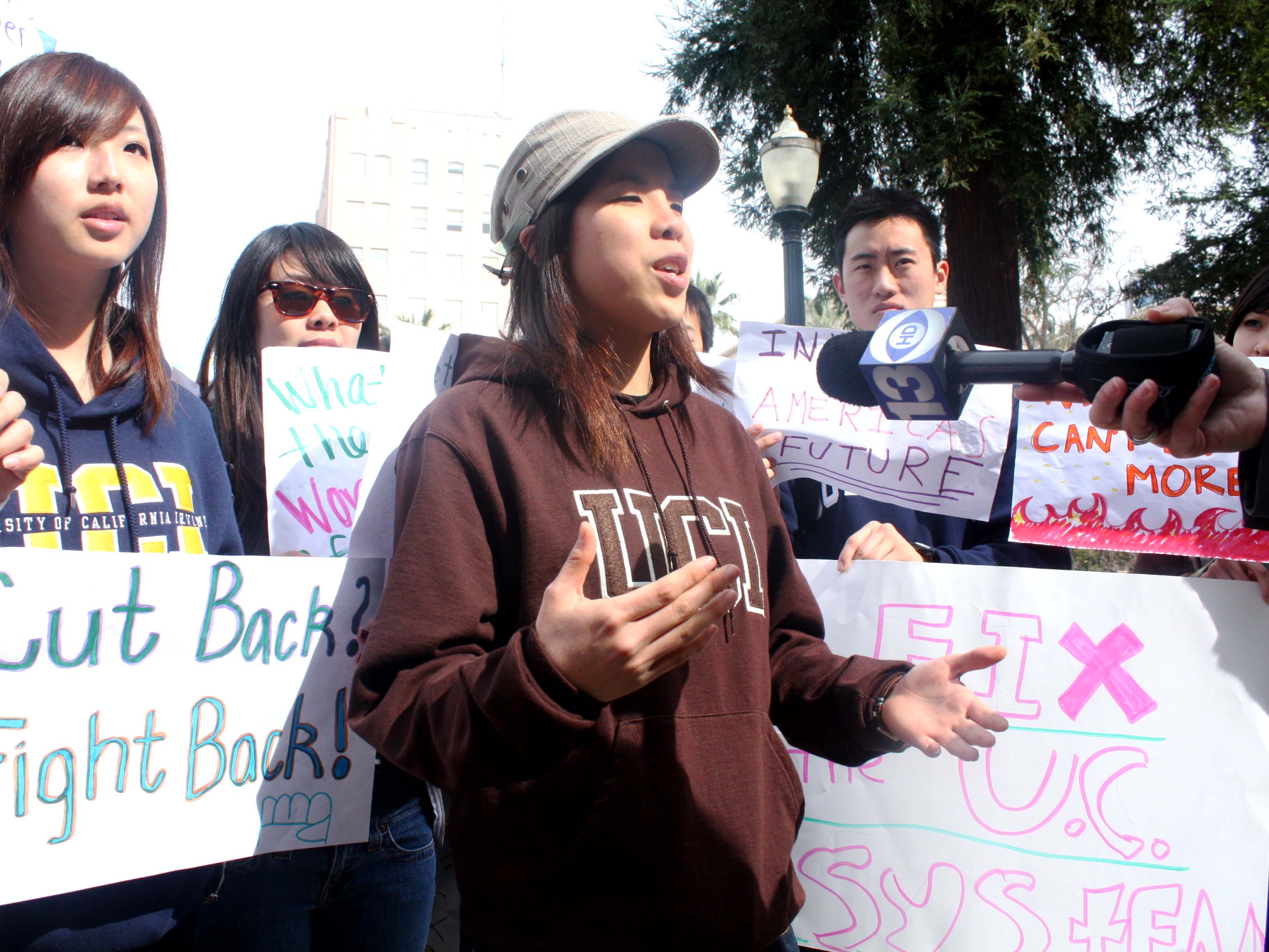While his classmates were in lecture on Tuesday, Jesse Cheng was in Sacramento fighting for their right to be in class.
He came back with a promise from Gov. Arnold Schwarzenegger to veto any budget that did not include funding for higher education.
While Schwarzenegger met with the top administrators from the state’s public higher education systems, about 250 students, board members and regents lobbied lawmakers alongside Cheng, the student regent designate and third-year Asian American studies student at UC Irvine.
“I think we educated a number of legislators on topics they didn’t know before,” Cheng said. “We got a lot of good feedback.”
Representatives from University of California schools, California State Universities and community colleges visited all 120 legislative offices throughout the Intersegmental Advocacy Day, according to Lynn Tierney, vice president of communications for the UC Office of the President. The event fell on the 50th anniversary of the Master Plan for Higher Education, which outlines policies for the state’s higher education systems.
“One of the advantages to intersegmental lobbying is that if your system doesn’t have something to offer to the legislators, another system does. If they didn’t go to a UC, they went to a community college,” said Sarah Bana, executive vice president of Associated Students of UC Irvine and a fourth-year quantitative economics student.
Student advocates stressed that investing in higher education aids the state in the long run. Studies have shown that for every dollar invested in the UC and CSU systems, the state gets back $5.67 and $4.41, respectively.
“We’re a multiplication factor. We’re a great investment for the state,” Cheng said.
The governor’s proposal would restore about $1.7 billion to California’s public higher education systems, alleviating part of the burden of the 32 percent student fee increase passed in November. But student advocates see this promise as a short-term reimbursement rather than a long-term increase.
“This government funding that we’re getting is not the money that we need to succeed, it’s what we need to stay afloat,” Cheng said.
Similarly, Steve Dixon, president of the California State Student Association, said the governor’s promises were a “bittersweet victory,” and that he would like to see a full restoration of the cuts made in the last 10 years.
Student advocates also fought to save the Competitive Cal Grant, said Christopher Santos, chairman of the Undergraduate Committee of the University of California Student Association and a third-year psychobiology student at UCLA. The governor currently plans to suspend the competitive grant and de-couple need-based grants from fee increases.
UCSA is supporting Assembly Bill 2447, which would institutionalize Cal Grants so they cannot be eliminated and increase financial aid according to the rate of inflation. Cal Grants are a big resource for community colleges, and many UCLA transfer students either benefitted from it or are still benefitting from it, Santos said.
With the budget up for revision in May, all three higher education systems have filed significant budget requests for their specific goals and collectively for the re-institution and full funding of Cal Grants, said Tierney.
“We’re in a very tough economic time, and the way we’re gonna get out … is by maximizing the number of people who are trained and educated,” she said.
The state will face a shortage of one million college-educated workers in 2025, according to the Public Policy Institute of California. These next 10 or 15 years are crucial for training the next generation of skilled workers, Tierney said.
But Tierney also stressed self-motivation in tackling the budget problems these institutions face.
“We have to do more ourselves, we have to be more efficient, and we have to search out ways that we can streamline operations or delivery so that we can still maintain access and opportunity,” she said. “The legislature has a finite amount of money and very, very significant demands on that money, and that’s only going to continue.”
Similarly, Steve Montiel, spokesman for the UC Office of the President, said Schwarzenegger’s statement was a definite step forward but that higher education is still looking for more.
“There is still a lot of advocacy needed to show how important education is and for there to be adequate funding,” Montiel said.
Although Tuesday’s efforts made progress, advocates are still pushing for more tangible results. Students are aiming for another intersegmental lobbying day within each district, Bana said.
“There are some underlying topics that are still going to affect students in one way or another, and that’s why we’re still fighting,” Santos said. “This conversation that they had (on Tuesday) really shows the influence that students have through the protests in September and November and all the advocacy that we’ve done this year.”
